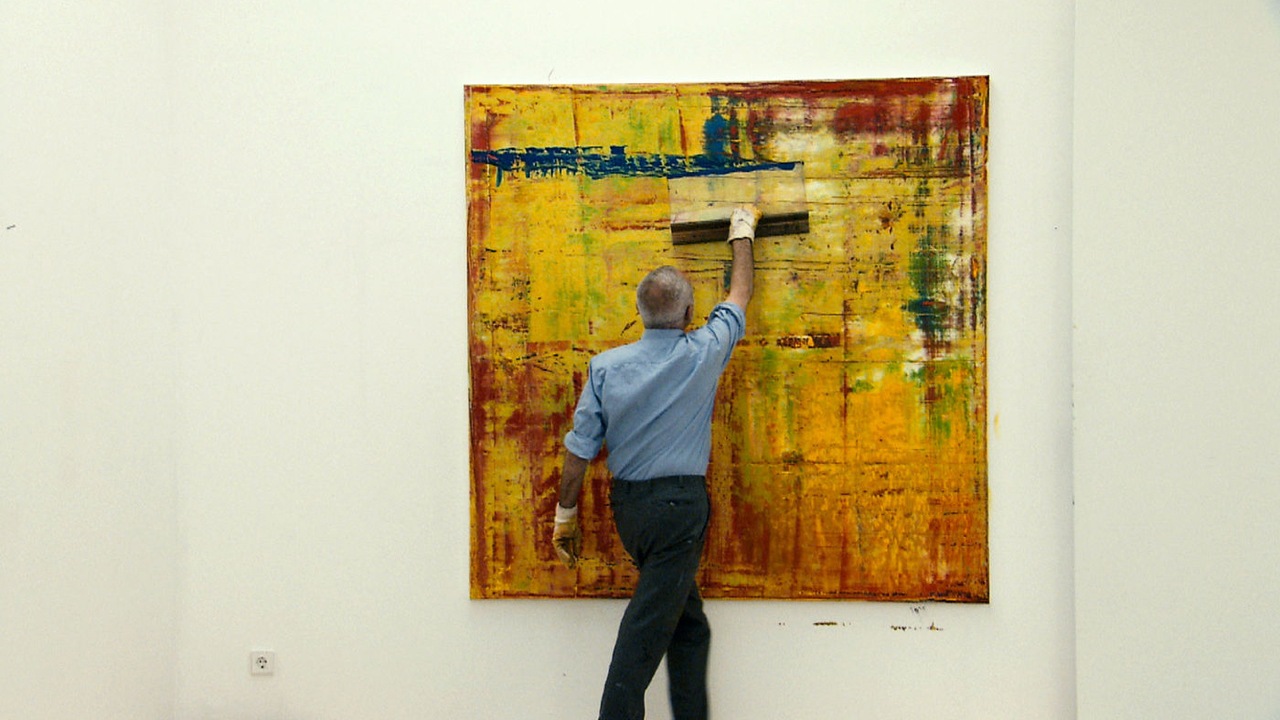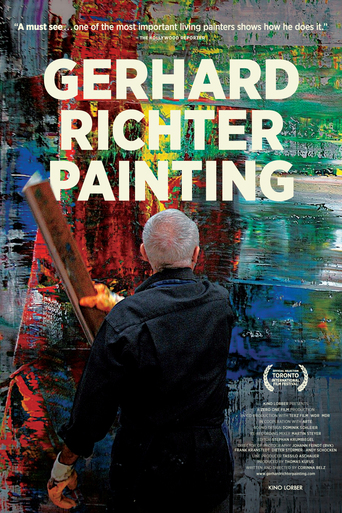SpuffyWeb
Sadly Over-hyped
Konterr
Brilliant and touching
Livestonth
I am only giving this movie a 1 for the great cast, though I can't imagine what any of them were thinking. This movie was horrible
Edwin
The storyline feels a little thin and moth-eaten in parts but this sequel is plenty of fun.
Always Learning
Many of the negative commentaries about this documentary assume that Richter wanted to be left alone and should be left alone; or alternatively, that Corinna Belz should have pried more intensely with "deep, probing" questions to Richter about the nature of his creativity, his technique, his background , etc. These objections show a certain lack of sensitivity and openness to what was actually offered in the documentary. In fact, at some point Richter complained that he did not behave as he normally would with the eye of the camera always around, and still the film got made! This was an act of incredible generosity and courage on Richter's part. Even while he remains circumspect, we do see him working. The whole voyeurism exercise could pose perhaps a risk to the evaluation of his work by posterity. It may also represent a teaching legacy for those who are able to learn from what they glimpse of his technique in the film. I can imagine that the director could have designed with the assistance of critics and scholars all kinds of challenging aesthetic questions, and risk a pedantic approach to the experience; but Ms. Belz chose a delicate touch in the end --indeed like the visit of a friend--and did not force the reactions of the artist. For those paying attention, there is a lot to learn from this film. However, beyond the recognition of Richter's generosity in letting us peep into his world, it is logical to believe that someone that looks so fit for his age, plans his exhibits in small scale, and works in such a clean architectural environment did keep the right to vet the final results in this film. Glimpses of his personal life are very few. His first two wives do not appear except in unlabeled portraits and you would not recognize them for who they are; his parents are mentioned briefly even though he did not see them again after his flight from East Germany; his young wife is an exquisite brief presence. In short, the film is probably a reflection of his disciplined persona.For those who care to see what was offered without the bitterness of not having accomplished this themselves, there is much to be praised in this film. My only complain concerns the English supertitles, which were not done with care. They can barely be read in half of the film. I hope this will be corrected at some point.
Knut Behrends
The filmmaker has been granted access to the "inner circle" (for no apparent reason), and Richer, his coworkers, employees, his wife etc talk to her quite casually, almost as a friend. But she does not take full advantage of this opportunity. There are no intelligent conversations, only friendly conversations. That is not enough. It is okay that Richter does not want to talk too much about personal matters, and does not really open his bag of tricks as a painter (in front of a running camera). Being filmed at work prevents creative powers being set free, many artists say (e.g. I remember Horst Janssen saying this to a film-team). Sometimes Richter seems to expect more of the conversation but quickly realizes that no-one around him has anything valuable to say about his art. Seems to happen all the time, so he does not care. He is not a diva, but quite down to earth.It is honorable that the writer/director does not want to lecture the user, this also means almost nothing gets treated with sufficient depth. I suspect the writer does not know enough about art (despite a lot of research and effort that she undoubtedly put into this documentary), and so has no intelligent questions to ask when it matters. Even when the conversation does not revolve around art, but instead abound family (for instance) the dialog is a but more fluent, but still, it stays quite boring.Sometimes the filmmaker throws in some snippets from vintage documentaries from the 60s which are a bit more inquisitive, but they seem misplaced and thus are not really helpful either. There are only subtitles shown very briefly. The music is minimalist modern classical (piano solo, or strings).If you praised Richters greatness as a painter to someone who does not know anything about him, and you showed her this movie before you showed her any paintings of his, she'd never believe that this is one of the greatest painters of our time.
ektakrome
The only reason I gave this film 9 out of 10, was because I believe Corinna should have invested in a roller for her tripod. Would have made for less shaking in the videos of Richter while he is painting. As a documentary filmmaker and painter myself. I can fully understand and admire what Ms. Belz accomplished in this film. I do however, remembering seeing the film this past Friday, note that I wish the lower 3rd titles had been a bit bigger for those who wear glasses. I know it was OK for me, but i'm sure a number of people were always asking... "who is that?".I can truly admire this historical document on modern painting. As Richter is not a "post" anything. He is someone who is dedicated to making what he feels is the best work he can do. You will see that in the sections where Ms. Belz speaks with Richters assistants. What they say rings true with many many modernist painters who will have to sit with a work for months before they feel it is ready to be put out in the world.So glad this film is out in the world. I can't wait for the DVD. My only sadness about the DVD is that I don't have the equipment to watch it in the format I first viewed in. This film deserves a big screen.
captain_dimpf
Gerhard Richter is an old man who doesn't like to be interviewed, who doesn't like to be filmed and who doesn't like to talk about his paintings. He's also a very famous German artist and though he obviously couldn't care less about this film, some clever marketing executive said, hell, we do it anyway, cause he is so damn famous, once this film is out, the middle class intellectuals will flock into the cinema in order to feel sophisticated in the virtual presence of a true artist. Sadly enough, judging by the crowd it attracted when I went so see it, it worked pretty well. My main gripe with this film is that Corinna Belz, who I take to be some TV journalist, has no concept for this full length documentary. Apparently she was under the illusion that it's enough to just stumble into the studio of such a genius, turn on the camera and then the magic will unfold. Well, sadly enough, it doesn't. In fact nothing happens and Corinna's inane off camera questions (How long did it take you?) don't help either. But then she is not bold enough to concentrate on the one thing that does in fact happen, namely, Gerhard Richter in the process of painting; no, spoiled by television aesthetics the edit never lingers too long on the act itself but feels compelled to jet to New York and London for a more cosmopolitan flair. But whenever I was on the brink of nodding off I was jolted back to attention by archive footage from the sixties where an eloquent and rather angry Richter is talking about his approach towards art. That would have been the proper time to make a documentary like this. Back then when he was still able to express himself coherently, when he was on the peak of his artistic powers, when he wasn't the weary and rather tired superstar he is now. Another venerable approach would have been to actually tell us something about his art, his significance in todays art world, but no one here has the guts to do so. He created so many great paintings, but this film doesn't do him any justice. He apparently wants to be left alone in his studio so that he can concentrate on his art. Whatever happened to decorum in the film industry. Just because he is old, doesn't mean his wishes should be ignored, especially when the resulting film is as nondescript as this.

